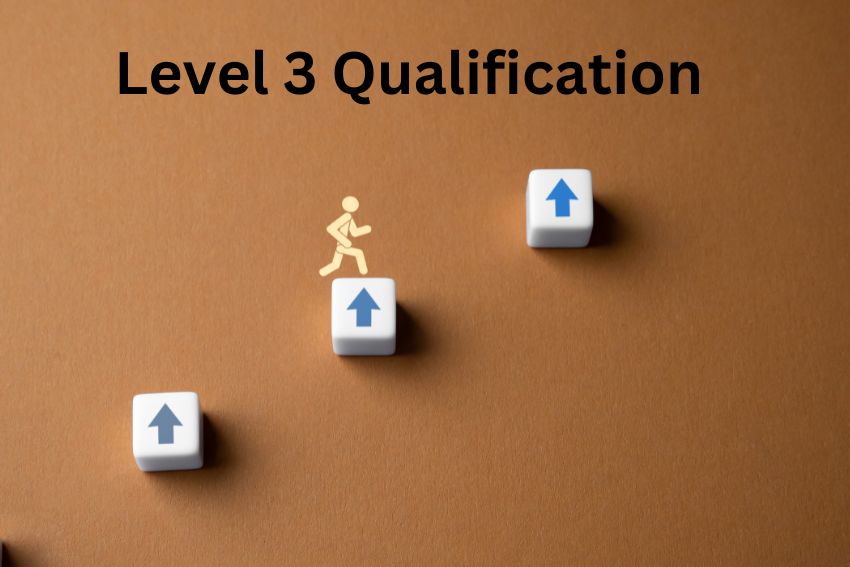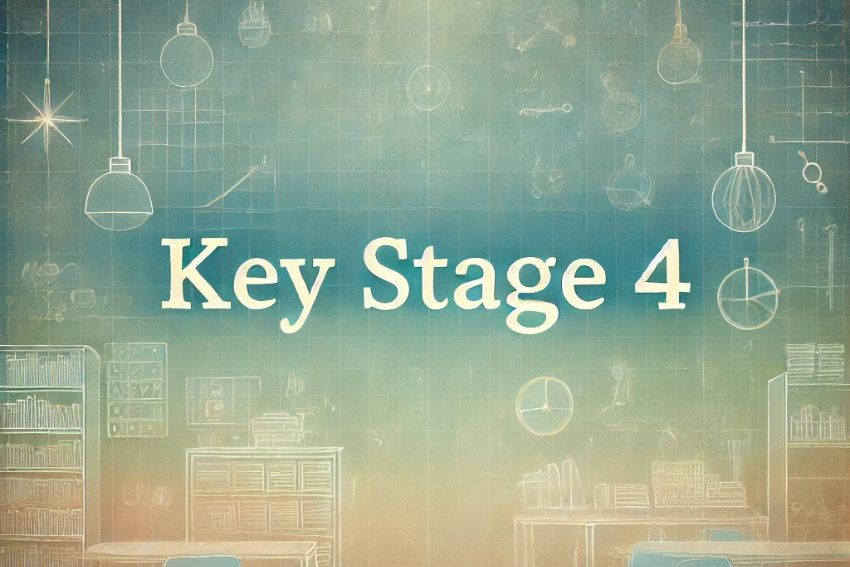In the UK, the education system is structured into levels, each representing a different stage of learning. These levels ensure that students can progress smoothly through their educational journey, gaining the necessary skills and knowledge. Level 3 qualification is essentially important stages in this process, typically taken after Level 2 qualifications, like GCSEs. They provide a solid foundation for higher education, vocational training, or skilled careers.
In this blog, we’ll explore everything you need to know about Level 3 qualification. And we help you to understand its significance and the opportunities for your future. So, let’s start!
What Is Level 3 Qualification?

A Level 3 qualification is an advanced qualification that represents a higher level of education compared to Level 2 qualifications (such as GCSEs). Students aged 16 and above typically take these qualifications, which are designed to prepare them for university. Also they prepare you for vocational training, or skilled employment.
What is a level 3 Qualification Equivalent too?
These qualifications are usually equivalent to A-Levels, although they can also include vocational qualifications such as BTEC Nationals or NVQ Level 3. Level 3 qualifications provide you with the opportunity to gain a deeper understanding of specific subjects. They are crucial for those looking to specialise in a field or pursue further education.
Types of Level 3 Qualifications
Level 3 qualifications offer a wide range of options, allowing students to specialize in academic, vocational, or technical fields. Here’s an overview of the most common types of Level 3 qualifications:
A-Levels (Advanced Level)
A-Levels are the traditional academic qualifications that are often required for university entry. Students typically choose 3-4 subjects to study over two years, such as Maths, English Literature, Biology, or History. A-Levels provide in-depth knowledge in specific subjects, preparing students for higher education and future careers that require a deep understanding of a subject. A-Levels are widely recognised by universities and can be used to gain admission to a variety of degree courses.
BTEC Nationals
BTEC Nationals are vocational qualifications that focus on developing practical skills in specific fields. These qualifications are ideal for students who prefer hands-on learning and want to enter the workforce. Or pursue further education in a vocational area. BTEC Nationals are available in a wide range of subjects, including Business, Engineering, IT, Health & Social Care, and more. They combine practical experience with theoretical knowledge, preparing students for careers in these sectors or progression to university. Employers highly regard BTECs, as they equip students with industry-specific skills.
NVQ Level 3 (National Vocational Qualification)
NVQ Level 3 qualifications are vocational qualifications that focus on providing specific skills for a particular industry or career. Assessors often evaluate these qualifications through practical work and evidence of on-the-job performance. This makes them ideal for students who want to gain hands-on experience. NVQ Level 3 commonly appears in fields such as Health and Social Care, Construction, Business, and Hospitality.
T-Level Qualifications
T-Level qualifications are newer vocational qualifications that offer a more structured, practical route into industries like Digital, Healthcare, and Education. These qualifications provide students with both technical knowledge and practical skills relevant to the workplace. T-Levels combine classroom learning with a substantial work placement, giving students real-world experience in their chosen industry. Employers and higher education institutions recognize them, offering an alternative pathway to university or a career.
| Level 3 qualifications are: |
| A level |
| access to higher education diploma |
| advanced apprenticeship |
| applied general |
| AS level |
| international Baccalaureate diploma |
| level 3 award |
| level 3 certificate |
| level 3 diploma |
| level 3 ESOL |
| level 3 national certificate |
| level 3 national diploma |
| level 3 NVQ |
| music grades 6, 7 and 8 |
| T level |
How to Choose the Right Level 3 Qualification
Choosing between A-Levels, BTECs, or NVQs depends on a student’s interests, career goals, and learning preferences. Here are some tips for making the right choice:
- A-Levels: Best for students who want to pursue university and focus on academic subjects like Maths, Science, and Humanities.
- BTECs: Ideal for students who want a practical approach to learning, focusing on skills needed for specific careers such as business, engineering, or healthcare.
- NVQs: Suitable for students interested in vocational training and gaining hands-on experience in a specific trade or industry, such as construction or hospitality.
What To Expect After Level 3 Qualification?
Level 3 qualifications offer students multiple pathways for further study or career opportunities. Whether you’re looking to continue your education, gain practical work experience, or step directly into the workforce, Level 3 qualifications provide a solid foundation for your future. Here’s how progression works after completing a Level 3 qualification:
Higher Education
For students who want to continue their education, Level 3 qualifications are the gateway to higher education. Many students use their A-Levels or BTEC Nationals to apply for university courses. Depending on the qualification and chosen subjects, students can pursue bachelor’s degrees (BA, BSc) in a wide variety of fields, including Business, Engineering, Health, and Arts. Universities highly regard Level 3 qualifications, as they provide the necessary academic foundation to succeed in degree-level study.
Completing a Level 3 qualification prepares students for the academic challenges of university life. It equips them with critical thinking and research skills to thrive in a higher education environment.
Higher Apprenticeships
Another excellent option for students after completing Level 3 qualifications is to pursue Higher Apprenticeships. These apprenticeships allow students to combine work experience with further study. Higher Apprenticeships provide the opportunity to earn while you learn, gaining practical skills and qualifications while working in your chosen field.
Fields such as engineering, digital technology, and management offer Higher Apprenticeships, allowing students to gain valuable industry experience alongside a qualification at Level 4 or above. This route is ideal for those who prefer hands-on learning and wish to enter the workforce with a higher level of expertise.
Employment
Level 3 qualifications, especially vocational ones like BTEC Nationals or NVQ Level 3, prepare students for immediate entry into skilled jobs across various industries. For example, students who complete vocational qualifications in health and social care, construction, or IT can start working in these sectors right after finishing their studies. Many industries highly value the practical skills developed through Level 3 qualifications, making graduates of these programmes attractive candidates for employers.
Moreover, Level 3 qualifications can also serve as a stepping stone for further career advancement. Students who start working after Level 3 can continue developing their skills through professional development, additional training, or certifications to move into more senior roles over time.
How Level 3 Qualifications Are Assessed?
Level 3 qualifications use a variety of assessment methods to evaluate students’ understanding and skills. Common assessment methods include:
Written Exams: A standard method for assessing knowledge and understanding, particularly in academic subjects like A-Levels.
Coursework: Often used in vocational qualifications, where students apply their learning to real-world scenarios.
Practical Assessments: For qualifications like BTECs and NVQs, where students demonstrate their skills in a controlled environment.
Projects: Used to assess students’ ability to apply knowledge in practical, real-world situations, especially in vocational subjects.
Entry Requirements
Most Level 3 courses require students to have completed Level 2 qualifications, typically GCSEs. Some vocational qualifications may have specific subject requirements, especially if they relate to a particular field, such as Health and Social Care or IT. It’s important to check the specific entry requirements for each course or institution before applying.
Key Benefits of Level 3 Qualifications
- Flexibility: There is a wide range of subjects available at Level 3, offering students the flexibility to choose a path that aligns with their interests and career ambitions.
- Career Readiness: Many Level 3 qualifications, especially vocational courses, focus on practical skills that are directly applicable in the workplace, making graduates job-ready.
- University Progression: A-Levels and BTEC Nationals are essential for university admissions. Level 3 qualifications provide students with the required qualifications to progress to higher education, whether at a traditional university or a specialised institution.
Level 3 qualifications play a crucial role in a student’s educational and career journey, offering valuable opportunities for personal development and future success. Whether you’re aiming for university, skilled employment, or vocational training, these qualifications provide the foundation needed for a bright future.
What Is a Level 3 Childcare Qualification?

A Level 3 Childcare qualification is an advanced qualification in the UK education system, typically taken after completing Level 2 qualifications such as GCSEs. It provides students with the essential knowledge and practical skills required to work in professional childcare settings. This qualification is ideal for individuals who want to pursue a career in early years education, working with children from birth to age 5, and is highly regarded by employers in the sector.
Key Features of a Level 3 Childcare Qualification:
- Hands-On Learning: The course combines theoretical knowledge with practical placements in childcare settings, allowing students to gain real-world experience.
- Essential Skills: Focuses on key areas like child development, safeguarding, health and safety. Supporting children’s emotional and physical needs, and early learning strategies.
- Entry into Senior Roles: This qualification opens the door to more advanced roles such as a nursery practitioner, early years educator, or childcare supervisor.
Examples of Level 3 Childcare Qualifications:
- CACHE Level 3 Diploma in Childcare and Education (Early Years Educator)
- BTEC National Diploma in Children’s Care, Learning, and Development
- NVQ Level 3 in Early Years Care and Education
How to Get a Level 3 Childcare Qualification
Meet Entry Requirements:
To begin a Level 3 Childcare qualification, you will typically need Level 2 qualifications, such as GCSEs (particularly in Maths and English) or a Level 2 Childcare qualification. Some courses may require a minimum grade in these subjects, while others may have additional entry criteria.
Choose a Course Type:
Full-time Study: You can attend a college or training provider that offers the qualification, either as a full-time or part-time course.
Apprenticeship: Some students may choose to undertake a Level 3 Childcare Apprenticeship, where they work in a childcare setting while studying towards their qualification. This provides hands-on experience while earning.
Complete the Coursework and Practical Placement:
The qualification involves coursework, which may include assignments, reports, and projects on topics like child development, early years education, and safeguarding.
Practical experience is a significant part of the qualification. You will need to complete a placement in a real childcare setting (such as a nursery, preschool, or primary school) to gain hands-on experience working with children.
Assessment:
The course is usually assessed through assignments, portfolio work, observations in a childcare setting, and occasionally exams. You will be required to demonstrate practical skills in real-world situations and write about the theory behind them.
Achieve the Qualification:
Once you complete the course and meet the assessment requirements, you will receive a Level 3 Childcare qualification. This qualification will allow you to work in a range of childcare roles and could also be a stepping stone towards further qualifications, such as a degree in early childhood education.
Why Get a Level 3 Childcare Qualification?
- Career Opportunities: It allows you to work in senior roles within childcare settings, such as a nursery practitioner, childminder, or early years educator.
- University Pathway: For those who wish to continue their studies, a Level 3 Childcare qualification can provide the necessary foundation for higher education, such as a degree in Childhood Studies or Education.
- High Demand: There is a growing need for qualified childcare professionals, making this qualification a great choice for those interested in making a difference in young children’s lives.
Completing a Level 3 Childcare qualification equips you to support children’s learning and development. This allows you to make a meaningful impact on their early education journey.
Conclusion: The Importance of Level 3 Qualifications
Level 3 qualifications are a vital step in shaping a student’s academic and professional future. They provide the necessary skills and knowledge for higher education, vocational training, and skilled careers. Whether you’re pursuing A-Levels, BTEC Nationals, or NVQs, these qualifications offer students the opportunity to specialise in areas they are passionate about. And prepare them for the next stage in their education or career.
If you are navigating through the complexities of Level 3 subjects, Our online A-Level tutors can offer invaluable support. The very best online tutors from Edumentors can provide personalized guidance, help you master challenging topics, and ensure they are fully prepared for exams and coursework. With the right resources and support, Level 3 qualifications can open doors to numerous opportunities, making them a key milestone in a student’s journey towards success. Good luck!








